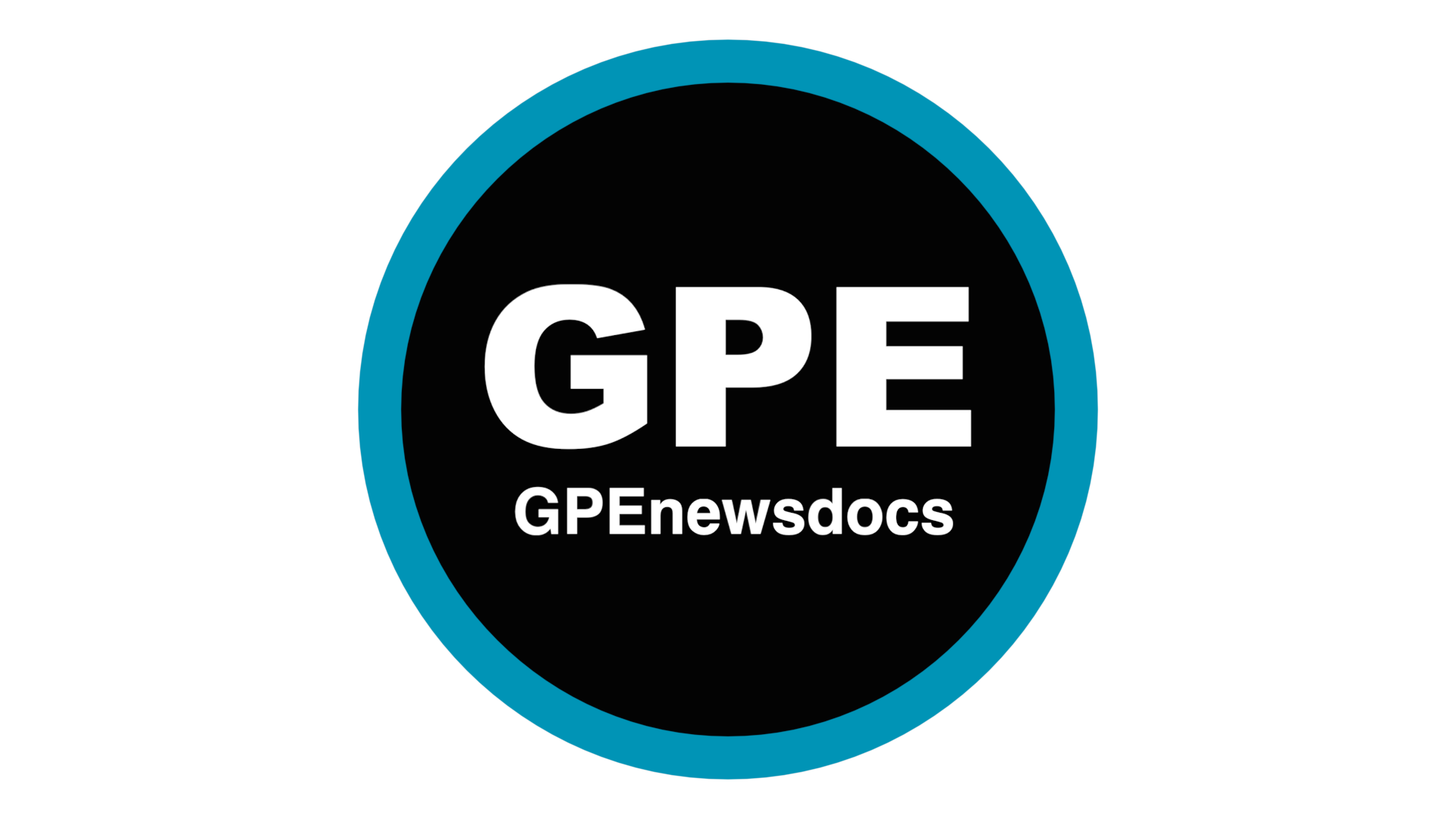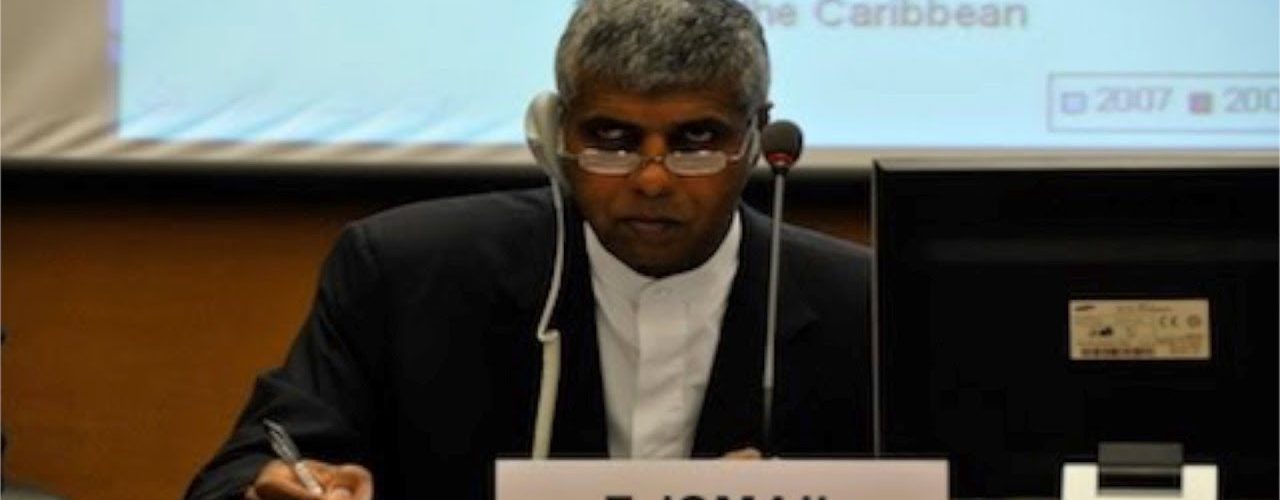The new phenomenon is that world production is taking place increasingly not by one multinational company in a sector but by a lead firm or a few lead firms and thousands of subcontracted companies producing in various countries and interconnected in various way through networks led by the lead firms says Faizel Ismail unpacking the global value chain approach to trade. With first hand negotiating experience as South Africa’s Permanent Representative to the World Trade Organization ( 2002 through 2014), Ambassador Ismail unpacks the global value chain approach to trade and how it was deployed to marginalize the Doha Development Agenda so critical to development goals of the Global South.
July 22, 2014 Produced by Lynn Fries
TRANSCRIPT
LYNN FRIES, TRNN PRODUCER: Welcome to The Real News Network. I’m Lynn Fries in Geneva. In this report, we investigate global value chains. We look into how and why they became important in trade negotiations at the World Trade Organization and why they reflect a new era in globalization. The Real News invited Faizel Ismail to talk to us about this.
Ambassador Faizel Ismail served as South Africa’s permanent representative to the World Trade Organization from 2002 through this year ending June. While at the WTO he wrote two books, Mainstreaming Development in the WTO and Reforming the World Trade Organization. He’s currently writing a book on the history of South Africa’s trade policy, from apartheid rule to its new democracy. Ambassador Ismail joins us in Geneva. Faizel, welcome.
FAIZEL ISMAIL, SOUTH AFRICAN AMBASSADOR TO THE WTO (2002-2014): Welcome to you too.
FRIES: Okay. So you were sent to Geneva in 2002 to lead South Africa’s negotiations in the Doha Round. The Doha Round was launched in 2001. These negotiations were being pursued under multilaterally agreed mandate among all member states. And it was also known as the Doha Development Agenda. In 2008, the negotiations fell apart, and since then a narrative has built that you oppose, that Doha is dead. The argument goes that fundamental changes in the world economy have made it obsolete. So let’s start with those fundamental changes in the world economy. What’s being talked about? What’s happening there?
ISMAIL: The new phenomenon is that world production is taking place increasingly not by one multinational company in a sector but by a lead firm or a few lead firms and thousands of subcontracted companies producing in various countries and interconnected in various way through networks led by the lead firms. This is a new phenomenon. I think it is recognized by many writers.
So what was happening in the 1980s and the 1990s was a convergence of different forces, if you like. They weren’t necessarily coordinating with each other. They tended to be processes which were happening simultaneously. One was a movement towards shareholder value, short-termism within companies. The other was a shift towards greater focus on core competence and outsourcing of ancillary and, let’s say, less core activities of the company towards other companies or being subcontracted and moved out of the country to other countries in the world.
FRIES: Why a convergence?
ISMAIL: I think it was a very short term focus, a narrow focus, and it pushed the managers to change their strategic focus towards short-termism, towards profit, and then to restructure and transform their own company strategies. And one of those strategies was a decisive shift towards core competence. And you know the famous consultants, like Michel Porter, for example, who’s well known because of the number of books he’s written, who was advising companies in the 1990s. And one of his main arguments was that if companies wanted to increase profitability, they should shift to core competence and downsize and farm out and hive off the ancillary parts of their companies.
FRIES: Okay. So the firms that had these non-core assets to hive off were headquartered in the advanced economies that had developed these giant vertically integrated multinationals that were being restructured. And to get a sense of the scale of the industrial restructuring that’s involved, you cited a number of $12 trillion of global mergers and acquisitions between 1980 and 2000, combined transaction value. And this is referencing the work of University of Cambridge scholar Peter Nolan. And in his view, this global mergers and acquisitions and foreign direct investment by a limited number of dominant firms transformed the world economy to such an extent he calls it a “business revolution”, big, global business revolution, that produced an unprecedented concentration of business power in large corporations, and that while the non-core assets were hived off, that there was such a concentration of power in these lead firms, they can exert tight control across the whole value chain, the reason being that if these suppliers want to be selected as ‘aligned’ or ‘partner’ suppliers to their lead firm in their respective sector, they have agree to cooperate. And you gave examples, you cited examples of what that means, that they have to agree to open their books to the lead firm, for example, and cooperate on many levels, for example planning their new plants, organizing their research and development, planning their production schedules, and delivering their products to the core firms, the lead firms in their respective sector.
So give us an example and talk more about your thoughts on all this.
ISMAIL: So, for example, if you take long range airplanes, well, there are only two companies in the world, Boeing and Airbus. And we just–you know, are just going through almost a decade now of dispute in the WTO between these two companies. There’s no third company in the world which comes anywhere near. There are others who are involved in the production of smaller airplanes, but long-range commercial aircraft only two. Similarly, in assembly of vehicles, in auto components, the number of companies now are on two hands. You see the same thing in cell phone technology, increasing mergers and acquisitions. And every day you see this happening. You see in the financial press furious activity by cell phone companies purchasing parts of each other’s companies and consolidating their core competence.
So you have a handful of companies now who dominate global production, not through producing in every part of the production process, but simply by controlling the core competence. So Apple simply controls the high-tech, high-skill, high-value part of the value chain where the technology is developed, further developed, and the branding and marketing and design of, say, Apple–the iPhone. And, similarly, you see the same thing across the board in a large number of industrial sectors. And Peter Nolan called it the new business revolution. And this was a shift. This is what consultants like Michael Porter and others were advising companies, to shift to core competence. But this was happening on a rapid scale and it has now become the dominant part of the world economy, the dominant trend, let’s say, in the world economy. And it is what’s shaping these global value chains–what shapes them are lead firms. So there’s a handful of lead firms in the financial sector, in the logistics sector, around the world, in the auto sector, and these are the firms now who are driving policy, trade policy, in the United States and Europe. So this was the second process.
The third process that also takes place in the 1990s is that of increased financialization. It takes place partly as a consequence of this focus on shareholder value, but partly because of what was happening in the financial sector itself.
FRIES: Let’s move now to the WTO. Trade rules of interest to big business–intellectual property rights and services–were incorporated into the multilateral system of trade for the first time with the Uruguay Round. That also created the WTO in 1994. In contrast, the Doha Round, launched in 2001, mandated that that round of negotiations should prioritize the needs of developing countries.
You were sent here to Geneva to negotiate the Doha Round. Tell us about that.
ISMAIL: Yes. It has been an extraordinary experience for me, because when I arrived in 2002, there was great deal of skepticism by developing countries that they would be actively engaged and be a significant part of the negotiating process. They felt this way because of the history of trade negotiations in the WTO, and the GATT before that, where they were generally marginalized and played a secondary role.
The Doha Round was and is certainly in sharp contrast to the history of negotiations in the GATT because it is the first round in which developing countries have played a central role. They have been key players, not only the larger emerging economies like China, India, Brazil, and others, like South Africa, but also the least developed countries, the African Group, the African, Caribbean, and Pacific countries, and a large number of other developing country coalitions and alliances, such as the G33 group, which focuses its efforts on food security and rural livelihoods and other groups. So it has been a unique experience for developing countries, the very first round in which they have played a central role and continue to do so.
The mandate of the Doha Round started from the premise that this round for the first time would ensure that the needs and interests of developing countries would be prioritized. And therefore the issues that we focused on and prioritized would be those that were of most concern to developing countries. So, high up on the priority list of developing countries was agriculture. And the reason for this was that the bulk of people, the majority of people in developing countries, like Africa, even Latin America and Asia, lived and worked in the rural areas. And in many parts of the world, particularly in Africa, we saw a deterioration in the productive capacity of agriculture, for many reasons, many factors, but certainly one factor which contributed to this was that of the highly distorted nature of world trade in agriculture.
So the case of cotton, of course, is a very good one, because a few West African countries, like Benin, Burkina Faso, and Chad, produce cotton as the main productive activity, and in this sector we found that the subsidies paid by the United States to corporate farmers tended to distort the prices of agriculture worldwide, reducing the price for and privileging U.S. exports in cotton and making these West African farmers uncompetitive.
So the hope of the Doha Round was that we would address this. And indeed we had gone a long way towards creating rules that would gradually phase out trade-distorting agricultural support, particularly in the North, which was the dominant subsidizer of agriculture.
FRIES: By definition, developing countries are latecomers to acquiring the kind of technological skills and global brands their firms will need to compete on a global playing field. So how did the need to catch up get prioritized, and, for that matter, the need to adjust and to diversify the economy away from dependence on commodity exports?
ISMAIL: The Doha Agenda had also included the concept of special and differential treatment. That is a recognition that developing countries are different from developed countries. They have less capabilities to compete in the global market. And they are at a different stage of development. They may require some policy space. In other words, they may require some support from the government and some subsidies and some tariffs to protect the more vulnerable and sensitive parts of their industry and agriculture. And that adjustment would have to be more measured and slower and more managed in developing countries, because the cost, the social cost of that adjustment will be much higher in developing countries, where unemployment is already high–in a country like South Africa, but many others. And the ability of the state to provide social support and welfare support to those people who are the victims of trade liberalization and adjustment is not as high–and it’s very limited indeed. So these concepts were all very much a part of the Doha Mandate.
But these forces that were linked to the lead firms in the United States and Europe were of the view that this was an old agenda and this was an obsolete agenda.
FRIES: Let’s talk about that next. Please join us for part two of our conversation with Ambassador Ismail. Faizel Ismail, thank you.
ISMAIL: Thank you, Lynn.
FRIES: And thank you for joining us on The Real News Network.
END TRANSCRIPT
Ambassador Faizel Ismail served as Permanent Representative of South Africa to the World Trade Organization (2002-2014) and as the Chair of the WTO negotiating group (CTDSS, 2004-2006) and the Chair of the WTO Committee on Trade and Development (CTD, 2006/7). He led the new democratic South Africa’s trade negotiations with the European Union, Southern African Development Community, Southern African Customs Union and several other bilateral trading partners including the US, India, and Mercusor since 1994. He is the author of two books on the WTO: Mainstreaming Development in the WTO and Reforming the World Trade Organization. He is currently writing a history of South Africa’s trade policy from apartheid rule to its new democracy. He is Associate Editor of the Journal of World Trade; Advisor to the BRICS Trade and Economic Research Network; Senior Research Associate, Centre for Rising Powers, University of Cambridge, United Kingdom; Senior Research Associate, Brooks World Poverty Institute, University of Manchester, United Kingdom; and member of the Partnership Council of the Global Alliance for Improved Nutrition (GAIN), Geneva, Switzerland. He holds a Masters in Philosopy degree in Development Studies from the Institute of Development Studies, University of Sussex, United Kingdom and an LLB and a BA degree from the University of Kwa-Zulu Natal, South Africa
Originally published at TRNN



